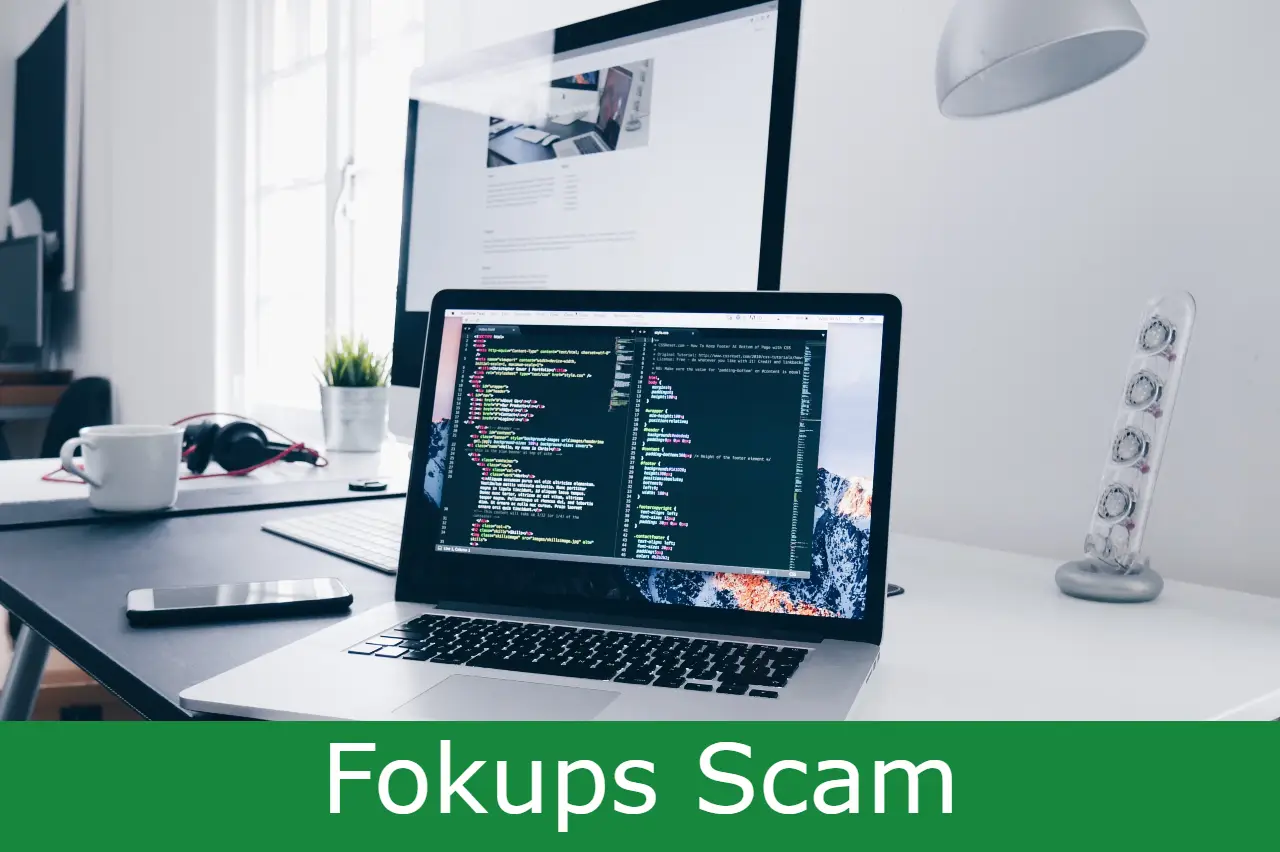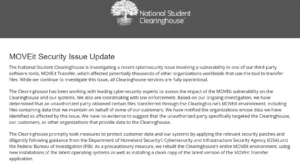Fokups Scam – The proliferation of online scams has become a concerning issue, with individuals falling victim to various fraudulent schemes. One such scam that has gained traction is the fake UPS redelivery website scam.
This scam involves a fake website, fokups.com, which closely resembles the design and logo of the legitimate UPS website. Perpetrators, who remain anonymous by utilizing privacy services, target recipients through mass messaging, claiming to be from UPS and providing a fictitious tracking number.
The objective is to lure recipients into clicking on a malicious hyperlink that redirects them to the fraudulent website. Once on the website, victims are prompted to disclose personal information under the pretense of confirming shipping details.
To protect oneself from falling victim to this scam, caution must be exercised when sharing personal information online, and the legitimacy of websites should be thoroughly verified before divulging sensitive data.
Reporting any suspicious messages or websites to the appropriate authorities, as well as raising awareness about this scam, is crucial. Moreover, adopting cybersecurity measures, such as antivirus software, strong passwords, two-factor authentication, and staying informed about emerging threats, is essential in safeguarding against such scams.
Table of Contents
What is Fokups Scam?
Recognizing the Fokups scam involves identifying the following red flags:
- Lack of affiliation with UPS
- Imitation of the authentic UPS site design and logo
- Registration by an anonymous entity utilizing a privacy service
Other red flags to look out for include:
- Use of fictitious tracking numbers in text messages
- Unsolicited messages claiming to be from UPS
The goal of the scam is to trick recipients into clicking on a malicious link that redirects them to the fraudulent fokups[.]com website.
To protect oneself, it is essential to:
- Be cautious when sharing personal information online
- Verify the legitimacy of websites before entering sensitive data
Additionally, it is advisable to:
- Use secure and trusted platforms for online transactions
- Regularly monitor financial statements for any unauthorized activity
Recognizing these red flags can help individuals avoid falling victim to phishing scams and protect their personal information.
Preventing Phishing Attempts
To mitigate the risk of falling victim to phishing attempts, it is important to exercise caution when sharing personal information online and verify the legitimacy of websites before entering sensitive data. Avoiding phishing attacks requires individuals to be vigilant and proactive in protecting their personal information.
Identifying red flags can help in recognizing potential phishing attempts. Unsolicited text messages claiming to be from UPS, requests for personal information through suspicious links, poor grammar or spelling errors in messages, urgency or threats of consequences if the information is not provided, and the lack of official UPS branding or contact information are all red flags to watch out for.
By being aware of these indicators, individuals can better safeguard themselves against falling prey to phishing scams.
Reporting Suspicious Activity
Reporting suspicious activity is crucial in combatting phishing attempts and ensuring the safety of online users. When it comes to protecting oneself from the fake UPS redelivery website scam, reporting suspicious messages and identifying phishing techniques play a vital role.
Individuals should promptly report any text messages or emails claiming to be from UPS that request personal information or contain suspicious links. These reports can be made to the mobile service provider for text messages or to the Anti-Phishing Working Group (APWG) for phishing emails.
Additionally, individuals should contact UPS directly to report any fraudulent activity. By reporting these scams, individuals not only protect themselves but also contribute to raising awareness and helping authorities in combating cybercrime.
It is essential to stay updated on the latest phishing trends and techniques and educate others about the importance of reporting suspicious activity.
Educating Others
Educating others about the fokups scam and similar phishing attempts plays a crucial role in increasing awareness and promoting online security.
Spreading awareness about these scams is essential to ensure that individuals are well-informed and cautious when encountering suspicious messages or websites.
By sharing information on social media platforms and discussing the topic with friends, family, and colleagues, people can better understand the tactics used by scammers and take necessary precautions.
Additionally, collaborating with authorities and organizations dedicated to combating cybercrime can help in developing strategies to prevent and address these fraudulent activities.
By working together, individuals and authorities can create a safer digital environment, protecting themselves and others from falling victim to scams and phishing attempts.
Cybersecurity Precautions
Implementing effective cybersecurity precautions is vital for safeguarding personal information and mitigating the risks associated with online threats.
One crucial aspect of cybersecurity is implementing strong passwords. Using unique and complex passwords for online accounts can significantly enhance security by making it harder for cybercriminals to gain unauthorized access. It is essential to avoid using easily guessable passwords, such as common words or personal information.
Additionally, regularly updating software is equally important. Software updates often include security patches that address vulnerabilities that cybercriminals may exploit. Failure to update software leaves devices and systems susceptible to attacks. By staying proactive and keeping software up to date, individuals can ensure that their devices are protected against the latest threats.
Implementing these cybersecurity precautions is a necessary step in maintaining online security and protecting personal information.
Frequently Asked Questions
How can I verify if a UPS message or website is legitimate?
To verify the legitimacy of a UPS message or website, there are several steps you can take. Look for official UPS branding and contact information, check for any spelling or grammar errors, and compare the website URL to the official UPS website. If you suspect a phishing attempt, report it to UPS and your mobile service provider.
What steps can I take to protect my personal information from phishing attempts?
To prevent phishing attacks and protect personal information, individuals should recognize suspicious emails by looking for poor grammar or spelling errors, requesting personal information, lacking official branding, or creating a sense of urgency.
What should I do if I have already entered my personal information on a fake UPS website?
If you have already entered your personal information on a fake UPS website, it is important to take immediate action. Report the scam to your local authorities and contact UPS customer service to inform them of the fraudulent activity.
How can I educate others about the fokups scam and similar phishing attempts?
Educating others about the fokups scam and similar phishing attempts is crucial. Emphasize the importance of regular software updates to prevent phishing attempts. Share common signs of phishing scams and provide tips to avoid falling for them, fostering a sense of belonging and promoting online security.
What are some additional cybersecurity precautions I can take to stay safe online?
To enhance online safety, individuals can implement additional cybersecurity measures. This includes installing and updating antivirus software, using strong and unique passwords, enabling two-factor authentication, exercising caution when clicking on links or downloading attachments, and staying informed about the latest online security tips.
Conclusion – Fokups Scam
In conclusion, it is crucial to protect oneself from the fake UPS redelivery website scam. By recognizing the scam, being cautious when sharing personal details online, verifying the legitimacy of websites, and reporting suspicious activity, individuals can minimize their risk.
Educating others about the scam and taking cybersecurity precautions, such as installing antivirus software, using strong passwords, enabling two-factor authentication, and staying informed about the latest threats, are also essential steps to safeguard against this scam.
By following these measures, individuals can reduce their vulnerability to online scams and protect their personal information.
Also Read
Is Advancedfinancialhelp.org Scam or Legit? Unveiling The Truth
Mupups Scam Explained: A Scam Usps Website Stealing Your Data
Is airjordanofficial.us.com Legit or a Scam? Uncovering The Truth
Also Read
Want a Bump Energy Review – Boost Your Energy Or Scam?
Vuletti Jewelry Reviews – Is Vuletti Jewelry A Scam or Legit?
Cool n Save Reviews – Is Cool N Save Legit or a Scam?
Also Read
Arfym Clothing Review – Affordable And Trendy Clothing?
Vrinax Reviews – Is Vrinax.Com Legit or a Scam?
Is Diarygiraffe Com Legit or a Scam? – The Qvc Impersonation Scam
Also Read
Is Mymups.Com Scam or Legit? – Fake Usps Website Threat
Is Mrkups.Com Scam or Legit? – Impersonating Usps
Is Salesaverr.Com Scam or Legit? Salesaverr.Com Reviews
Also Read
Is Oruzora.Com Scam or Legit? Using HSN and AMAZON Brands
Is Pearllis.Com Scam or Legit? Pearllis.Com Reviews
Cweede.com Reviews – Is Cweede.com Legit or a Scam?
Also Read
Is Geek Squad Email Scam or Legit? How to Stay Safe Online


















































